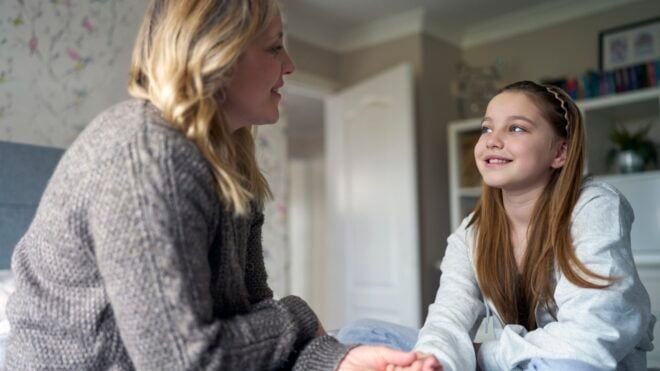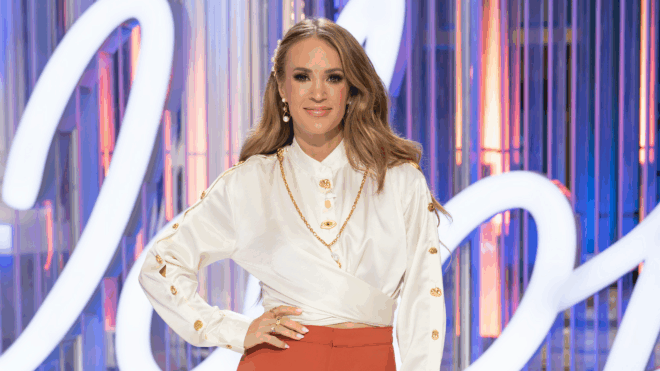
When you become a parent, your kids’ health and happiness become your first priority, which means your own wants and needs often take a backseat. Normally it’s fine — and even good — to put your kids’ needs ahead of your own, but there are some specific times when we should put ourselves first — like when it comes to physical and mental health. Let’s be honest, we will always find time for our kids' health appointments, but it's easy to push off our own doctor visits. A recent study showed that 3 in 4 moms admit they don’t always keep up with their own routine healthcare—with most prioritizing their kids’ and partners’ health. That’s why it’s so important to remember that by staying caught up on our own health, we’re teaching our children that self-care is important.
As a parent, it’s important to find balance between focusing on your kids’ well-being and your own health and wellness.
Here are some essential things you should always make time for:
1. Mental Health
It’s always important to take care of your mental health — and to show your kids that their mental health matters. Focus on your own mental health by meditating and doing breathing exercises, getting fresh air and physical activity, and talking to mental health professionals. Prioritize mental health as a family by going for walks together, talking about your emotional and mental well-being, or doing yoga together.
2. Self-Care
A lot of us struggle with finding time for self-care, but it’s essential! It’s always a good idea to make some time for yourself, whatever that means for you. Whether you’re taking a long nap, spending an afternoon at a spa, reading a book, or indulging in some reality television.
3. Relationships
Sometimes we get so caught up in our busy daily lives that we forget to focus on our relationships — with our partners, friends, parents, and even acquaintances. As parents, we spend a lot of time with our kids, so maintaining adult relationships can be extremely beneficial to our well-being. Try to spend quality time with loved ones, even if it’s just for a few minutes or over the phone.
4. Physical Health
When it comes to your physical health, be sure to make time for preventive care, like going to regular doctor and dentist appointments, staying active, eating thoughtfully, and staying up to date on vaccines. Beginning in 1991, hepatitis B vaccination became standard of care for infants, making it the first shot babies likely received before leaving the hospital. Now, the CDC recommends all adults aged 19-59* get caught up on their hepatitis B vaccination status – parents, that means you. There are different options for hepatitis B vaccines, but only one protects adults with just two doses in one month: HEPLISAV-B® [Hepatitis B Vaccine (Recombinant), Adjuvanted]. It’s essential to complete all doses of any hepatitis B vaccine to be protected. With just 2 doses in 1 month, you’re done. HEPLISAV-B provides faster and higher rates of protection without having to flip through your calendar. To learn more about how to get caught up on your hepatitis B vaccination status and to find a pharmacy near you, visit HEPLISAVB.com.
INDICATION
HEPLISAV-B is indicated for the prevention of infection caused by the hepatitis B virus in adults 18 years of age and older.
IMPORTANT SAFETY INFORMATION
If you have a history of severe allergic reaction after a previous dose of any hepatitis B vaccine, or to any ingredient of HEPLISAV-B, including yeast, do not take HEPLISAV-B.
HEPLISAV-B must be given by a medical professional, who will monitor you afterwards to check for allergic reaction.
If you are immunocompromised, or receiving immunosuppressant therapy, you may have less of an immune response to HEPLISAV-B.
Some people have hepatitis B infection without being aware of it or showing any symptoms. If you already have hepatitis B present in your body, HEPLISAV-B may not prevent hepatitis B infection.
The most common side effects reported by patients within 7 days of vaccination with HEPLISAV-B were pain at the site of injection (23%-39%), tiredness (11%-17%), and headache (8%-17%).
Please see full Prescribing Information.
The CDC also recommends hepatitis B vaccination for adults aged ≥60 with risk factors. Adults aged ≥60 without risk factors may receive hepatitis B vaccination. All stats via Dynavax.
Sponsored by Dynavax US-22-00-00318



